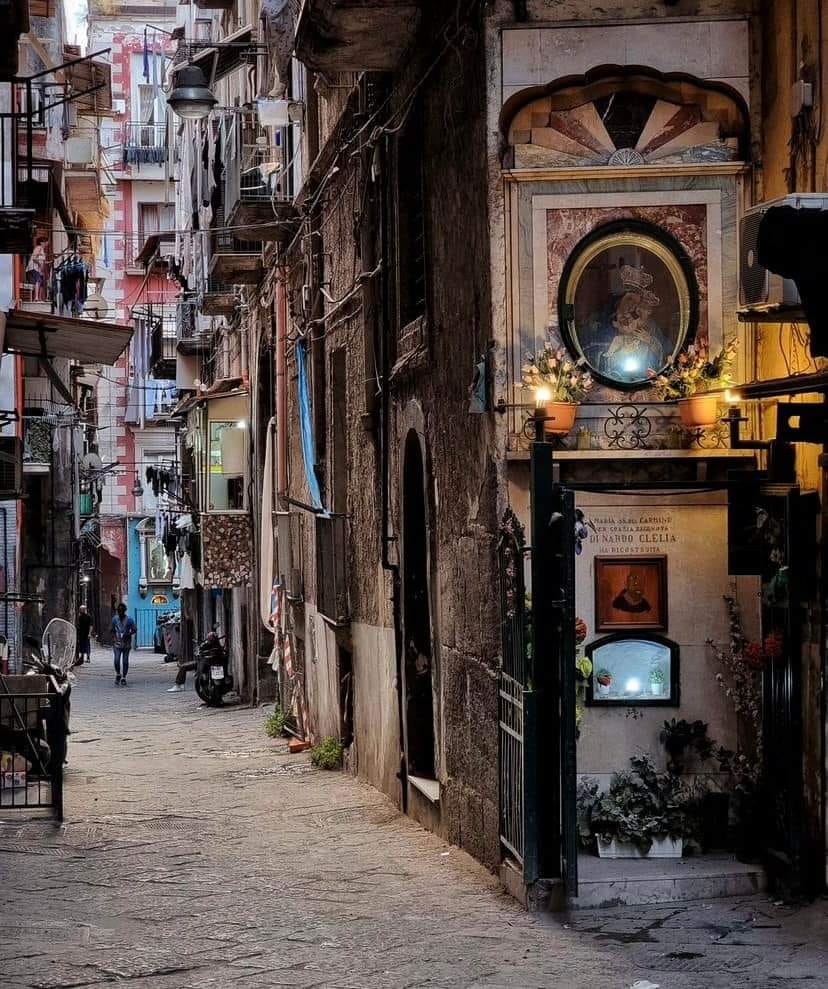“Napule è tutt’ nu suonno, e ‘a sape tutt’o munno… ma non sann’ ‘a verità” (Pino Daniele, 1977)
“Naples is a dream, and the whole world knows her… but it doesn’t know the truth”
Defeated Parthenope, half bird half woman, wants to be seen, understood, discovered, but she doesn’t dare to hope. She was scorned fatally, once, by Odysseus.
The Odyssey tells us that it was here, in what would be later called the Gulf of Naples, that the man also known as Ulysses had his crew tie him to his ship’s mast so that he could listen to the maddeningly beautiful sirens’ song without throwing himself into the waters. Her inability to lure him broke the heart of one of the sirens, Parthenope, who let herself drown in the sea. Her body washed up on the spot where Neapolis (“the new city”) was built. Remembering her sacrifice, we Neapolitans still call our city “Parthenope”, and ourselves "Parthenopeans".
Naples knows she asks much: to understand this city you have to become porous like the stones on which it was built, ready to absorb, willing to suspend your judgment, guarded on the outside (you have to have 1000 eyes in Naples) but new and curious as a baby on the inside. Until you do that, you will only see postcard Naples: spaghetti, pizza, and mandolino.
That’s the Naples everyone knows: filled with laughter and jokes, irreverent and blasphemous, deeply Christian and even more deeply pagan. But there is a touch of sadness in its cheerfulness. It comes with being so old, older than its age. Founded by Greek settlers who reached its coasts laden with artifacts, provisions, and centuries of history, Naples is infinitely older than Rome, even though they were founded at roughly the same time. While Rome was born brand new, full of life and arrogant like only a new civilization can be, Naples began its life already ancient, already carrying the weight of centuries.
If Rome is Roman, proudly and undeniably so, Naples is Greek, Roman, Byzantine, Norman, Swabian, Spanish, and French. Always forced to reinvent itself, it’s a bastard city which managed to stay true to its soul, a marvelous enigma for those who are willing to question their assumptions.
Will you take up the challenge?
In May 2016, Italy’s Hidden Gems accompanied a small group of wonderfully curious guests to Naples and turned them into enthusiastic Naples aficionados. Attached below is a description of that trip.
For details on our next tour to Naples email travel@italyshiddengems.com.






Hi Glenn,
I'm glad you enjoyed reading about Naples!
Hope to see on our next tour there :)